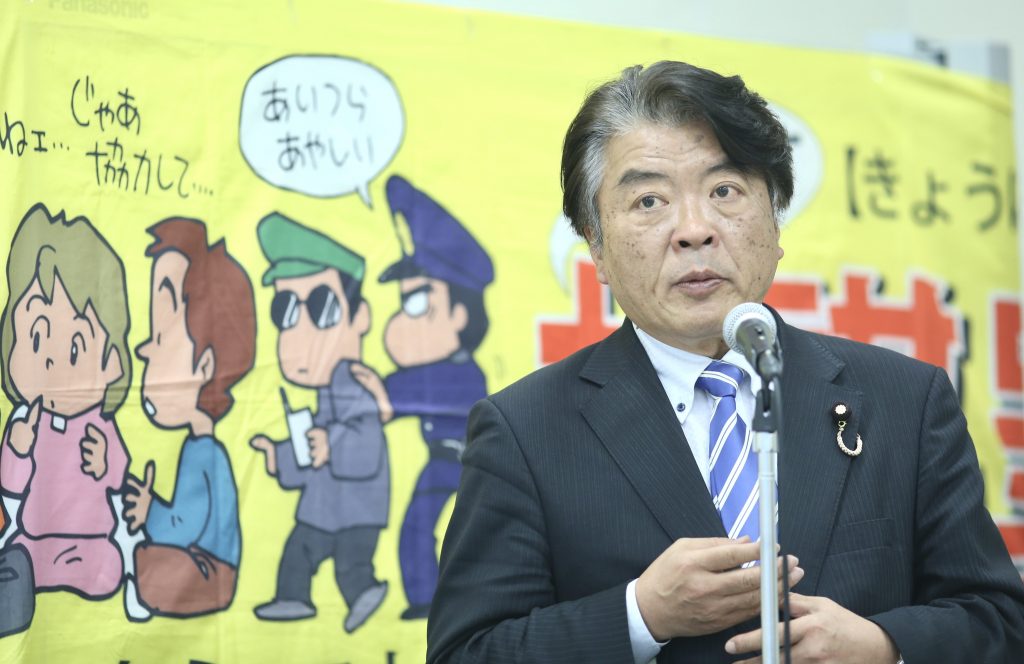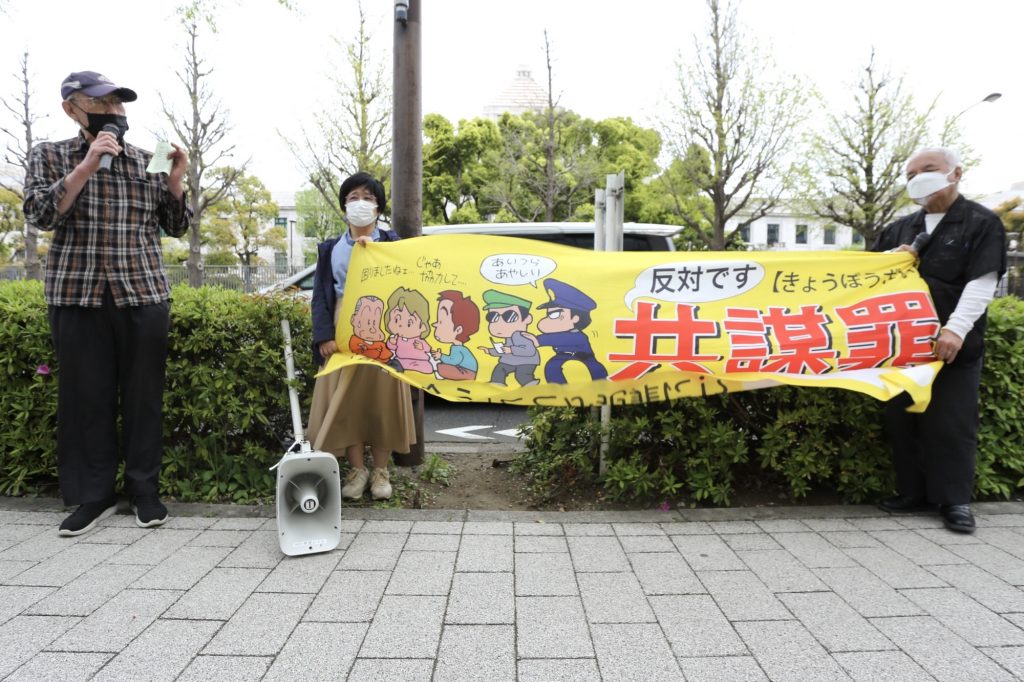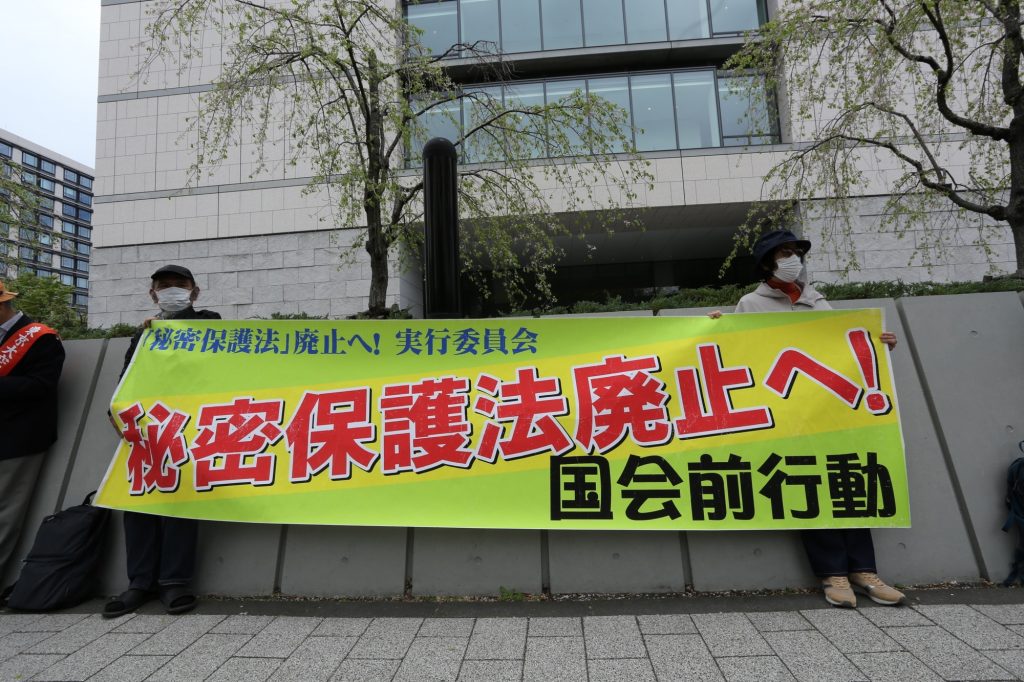





TOKYO: About 30 opponents of Japan’s military secrets law, conspiracy law and the digitization of personal data gathered in front of parliament on Thursday in response to the recent decision of the government to increase taxes for military spending.
The demonstrators met with opposition parties, who gave them their support and reaffirmed the need for transparent democracy, even with military secrets.
INOUE Takashi, a 55-year-old Japanese military navy captain, was charged with sharing “secrets” with a retired admiral. Eventually, the Yokohama prosecutors office dropped the charges in what was believed to be the first case concerning this law.
Activists worry about a possible rise in cases as the government tries to hide military secrets while its defense budget grows.
During discussions in parliament, civil groups said that in a democracy, there should be transparency.
The law, which was passed under the administration of the late hawkish ABE Shinzo in 2013 gave rise to large-scale demonstrations. Many artists and intellectuals, such as MIYAZAKI Hayao, came out against its application. The law on state secrets concerns military, diplomatic and counter-terrorism issues.
Activists point to other worrying intrusions into people’s lives, such as transport company JR East’s video surveillance system that has facial recognition.
In parliament, IBUSUKI Makoto, a law professor at Seijo University, gave a lecture on private data. The professor found that the Google Fence system that has been around since 2018 grew rapidly after supporters of former US President Donald Trump invaded the capitol and that tech giants were becoming more intrusive in people’s lives.